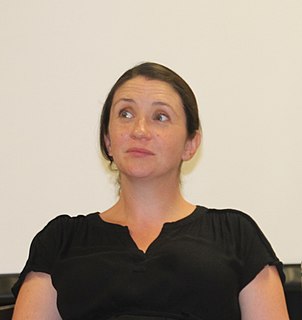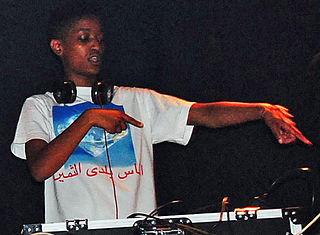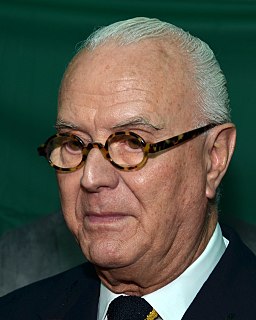A Quote by J. Courtney Sullivan
For whatever reason, various outlets and individuals are committed to making the world think that young girls don't talk or care about feminism anymore, that it's totally over. But it's not.
Related Quotes
On Girls I like being a mouthpiece for the issues I think young females face today. It’s always shocking when people question whether it’s a feminist show. How could a show about women exploring women not be? Feminism isn’t a dirty word. It’s not like we’re a deranged group who think women should take over the planet, raise our young on our own and eliminate men from the picture. Feminism is about women having all the rights that men have.
I think feminism has always been global. I think there's feminism everywhere throughout the world. I think, though, for Western feminism and for American feminism, it not so surprisingly continues to center Western feminism and American feminism. And I think the biggest hurdle American feminists have in terms of taking a more global approach is that too often when you hear American feminists talk about international feminism or women in other countries, it kind of goes along with this condescending point of view like we have to save the women of such-and-such country; we have to help them.
I think, at some level, we see young people all over the country mobilizing around different issues, in which they're doing something that I haven't seen for a long time. And that is, they're linking issues together. You can't talk about police violence without talking about the militarization of society in general. You can't talk about the assault on public education unless you talk about the way in which capitalism defunds all public goods. You can't talk about the prison system without talking about widespread racism. You can't do that. They're making those connections.
One of the biggest lessons I've learned is that there has got to be a reason for what you're doing. You actually have to care about what you're doing. The business has to be about something. Whatever the point of it is does not have to be inconsistent with making money, but usually if that's the sole reason, it is not very successful.
I see a vision of a great rucksack revolution thousands or even millions of young Americans wandering around with rucksacks, going up to mountains to pray, making children laugh and old men glad, making young girls happy and old girls happier, all of 'em Zen Lunatics who go about writing poems that happen to appear in their heads for no reason and also by being kind and also by strange unexpected acts keep giving visions of eternal freedom to everybody and to all living creatures.
September 11 definitely opened our eyes, but when I was 19 or whatever on the last record, we just didn't care about anything. We were too young to care about anything. And then as you get older, you don't really have any excuse to be stupid anymore, to be in the dark. That just kind of opened everyone's eyes (which I probably wish it did to more people) that there's obviously something wrong, to try and figure out what it is and what's going on in the world.
Something I say a lot when it comes to anti-feminist stereotypes is that they exist for a reason. The stereotypes of feminists as ugly, or man-haters, or hairy, or whatever it is - that's really strategic. That's a really smart way to keep young women away from feminism, is to kind of put out this idea that all feminists hate men, or all feminists are ugly; and that they really come from a place of fear. If feminism wasn't powerful, if feminism wasn't influential, people wouldn't spend so much time putting it down.
Something you hear a lot is that feminism dead. But if feminism is dead, why do people try so hard to kill it? Something just isn't making sense there. So I think when young women hear like, hey, someone's trying to get something over on me, you know, someone's trying to deliberately keep me away from a movement that could make my life better, I think that really resonates with them.
I'm not very nostalgic, you see. I just don't think anybody has that kind of thing anymore. By culture, by breeding, by whatever, it's not there. The kids today-what the hell are they going to be? I like young people - yes, I do. But when I talk to people at the schools, and they say, "I saw you on the Twit," I don't even know what they are talking about.




































